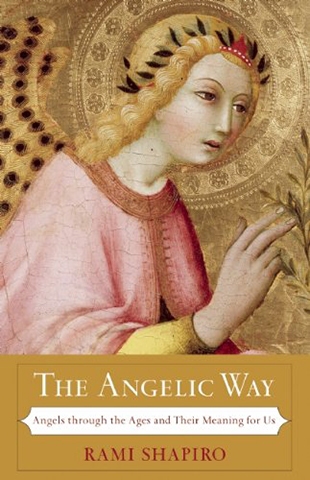Angels play an important role in the world's religions, performing a variety of functions. They are heavenly beings, spiritual messengers, and ministers of grace. Some people view them as incorporeal, disembodied spirits; others see them as white-robed, winged figures. The poet and visionary William Blake saw angels in trees; Jacob wrestled with an angel; Joseph Smith founded the Mormon Church after a meeting with the angel Moroni.
In this illuminating paperback, Rabbi Rami Shapiro, the author of many books and one of our Living Spiritual Teachers, tackles this complicated subject by providing an overview of angels in the world's religions and their multiple meanings for us. For him, angels are aspects of our own consciousness and symbols of our capacity for self-improvement. They are not physical but imaginative faculties. Or to put it another way, "Angels are complements to humanity; they are the way we humans can become fully human overcoming our ego-centered mind to which we all too often limit ourselves and our self-understanding."
After briefly looking at angels in Zoroastrianism, Judaism, Christianity, Islam, the Afro-Brazilian religion of Candomble, and Hinduism, Shapiro concentrates on angels who interact with human beings — Michael, Gabriel, Raphael, Uriel, Satan, and the angel of death. According to Jewish rabbis, there is not a blade of grass that does not have a protecting angel and St. Augustine agrees: "Every visible thing in this world is put under the charge of an angel."
Shapiro wants us to take seriously this angelic dimension of humankind; it is "the capacity to experience and integrate ego-centered mind, world-centered soul, and God-centered spirit." In other words, all the stories of angelic visitations to earth and human beings ascending to heaven are signs that God and humanity are wed to each other. Shapiro points out that the Greeks called this process of divinization apotheosis (from Greek "to deify"). Angels call us to a great spiritual adventure — to move from our stunted "ego-centered consciousness to unbounded divine consciousness." Left with this high flying note, we find ourselves dizzy with its implications and grateful to the author for planting its seeds in our minds.
